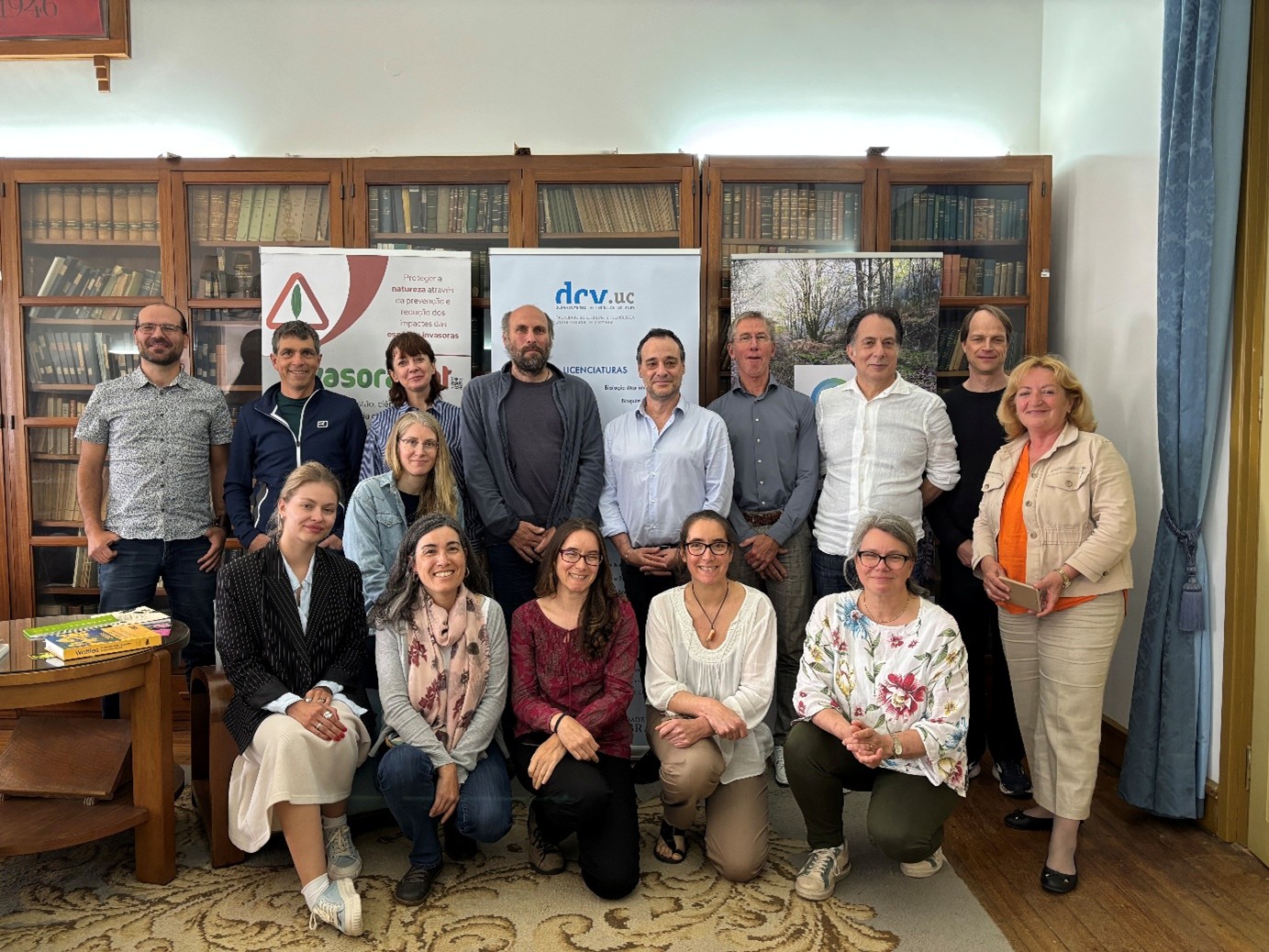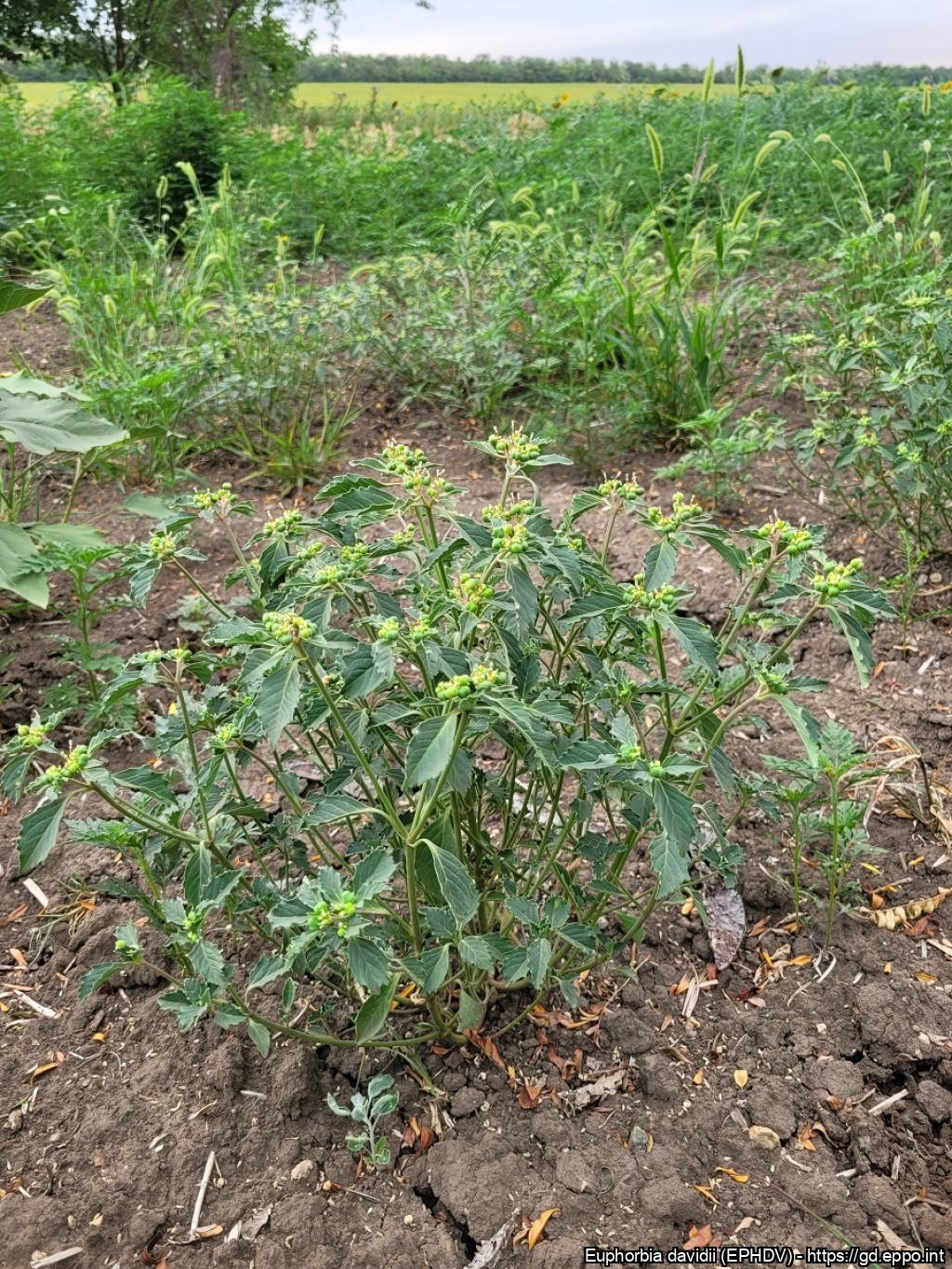
30th Meeting of the EPPO Panel on Invasive Alien Plants
University of Coimbra, Coimbra (PT), 2025-05-13/15
The 30th meeting of the EPPO Panel on Invasive Alien Plants was held at the University of Coimbra on 13 – 15th May 2025.
The Panel on Invasive Alien Plants considers all horizontal aspects of risk assessment and risk management measures for invasive alien plants in the EPPO region. It develops communication material to raise awareness on invasive alien plants. The list of the Panel Members and their terms of Reference is accessible on the EPPO website.
The Panel members presented updates from their countries on activities concerning invasive alien plants.

Photo of the Panel during the meeting at the University of Coimbra
Prioritization of invasive alien plants
The Panel reviewed the prioritization of 25 invasive alien plant species and finalised the scores for each species. The prioritization of these species was conducted using a new online prioritization tool (developed based on the EPPO Standard PM 5/6[1]) that will shortly be made available to member countries. Three species (Leucaena leucocephala subsp. glabrata, Pterocarya fraxinifolia and Senecio angulatus) were identified as having a high risk to the EPPO region and were considered priority for pest risk analysis (PRA).
The Panel agreed to conduct the prioritisation process on two species which are being considered for listing as Species of (EU) Concern under the EU Regulation (1143/2014), namely Acacia mearnsii and Broussonetia papyrifera. If the results of the prioritization show either species is a high risk to the EPPO region, a PRA report can be conducted.
Pest Risk Analysis (PRA)
The Panel reviewed the draft PRA on Euphorbia davidii and agreed with the assessment of the Expert Working Group. Euphorbia davidii has the potential for economic impacts within the EPPO region. The Panel recommend that the PRA should be sent to the EPPO Working Party on Phytosanitary Regulations (WPPR) for approval for listing as an EPPO A2 pest.
The Panel noted that S. angulatus was the highest priority for PRA, and recommended it should be added to the work programme for 2026.

E. davidii
Courtesy: Yuliana Kulakova
Standards
A draft PM 9 Standard on Amaranthus palmeri and A. tuberculatus will also be sent to the WPPR for approval.
The Panel discussed a new draft PM 9 Standard on Zizania latifolia and agreed that the Standard should be edited to reduce some repetition. Following this, the Standard can be sent for country consultation.
Awareness raising
The Panel agreed to explore further ways of raising awareness on invasive alien plants in the EPPO region, potentially through workshops, webinars and awareness raising days dedicated to invasive plants.
Technology
The Panel agreed to explore how Artificial intelligence (AI) can be used to improve the work of the Panel. The Panel noted that the capabilities of AI is developing fast and it was agreed that experts on this subject will be invited to the next meeting of the Panel, which will be held in Paris in 2026.
[1] EPPO (2012) PM 5/6 EPPO prioritization process for invasive alien plants. EPPO Bulletin, 42, 463-474.
